Title : First isolation of Bacillus licheniformis from Bovine Mastitis in Iran
Abstract:
Bacillus licheniformis is a gram-positive, endospore-forming, saprophytic and facultative anaerobe that is resistant to heat and environmental conditions. This study was the first to isolate and confirm B. licheniformis as a cause of bovine mastitis in Iran. In the summer of 2020, 105 samples of mastitic milk were collected from dairy farms around Tehran and sent to the microbiology laboratory of the Faculty of Veterinary Medicine at the University of Tehran. The bacterial pathogens were identified using selective and differential culture media and confirmed by PCR to contain the toxin synthetase genes licA, licB and licC in mastitic isolates of B. licheniformis. Resistance patterns to 19 antibiotics were determined for two isolates of B. licheniformis. Staphylococcus aureus and Escherichia coli were identified as the most important organisms in the samples. B. licheniformis was isolated from the two samples containing all three genes. Both isolates were resistant to streptomycin, trimethoprim-sulfamethoxazole, cefixime, ampicillin, bacitracin, clindamycin, and gentamicin. B. licheniformis was reported for the first time in Iran as a cause of bovine mastitis with clinical symptoms. The first isolation of toxin-producing strains of B. licheniformis from mastitic cows in Iran raises concerns about the safety of dairy products. In principle, selected strains with toxigenic potential should not be used as feed additives and animal feed. However, whole genome sequencing is proposed to search for genes coding for toxins.
Keywords: Bacillus licheniformis, Bovine, Isolation, Mastitis, Toxin synthetase genes



